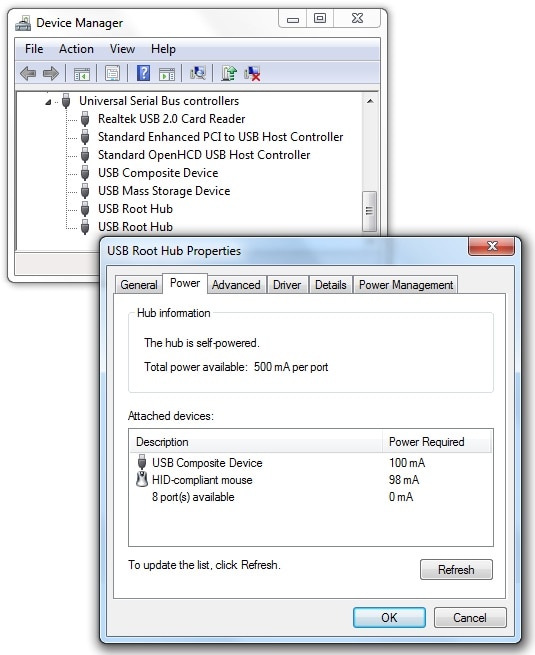

Microsoft had planned a full release of Windows 98 for the first quarter of 1998, along with a Windows 98 upgrade pack for Windows 95, but it also had a similar upgrade for Windows 3.x operating systems planned for the second quarter. It was followed by Windows 98 Beta 2, which dropped the Memphis name and was released in July. Memphis first entered beta as Windows Memphis Beta 1, released on June 30, 1997. 2.4 Improvements to the system and built-in utilitiesįollowing the success of Windows 95, development of Windows 98 began, initially under the development codename "Memphis." The first test version, Windows Memphis Developer Release, was released in January 1997.2.2.2 Other device support improvements.

WINDOWS 98 USB PROBLEM DRIVER
Windows 98 was the first edition of Windows to adopt the Windows Driver Model, and introduced features that would become standard in future generations of Windows, such as Disk Cleanup, Windows Update, multi-monitor support, and Internet Connection Sharing. Most of its improvements were cosmetic or designed to improve the user experience, but there were also a handful of features introduced to enhance system functionality and capabilities, including improved USB support and accessibility, as well as support for hardware advancements such as DVD players. Windows 98 is a heavily web-integrated operating system that bears numerous similarities to its predecessor and relies on the HTML language.

Like its predecessor, it is a hybrid 16-bit and 32-bit monolithic product with the boot stage based on MS-DOS. It is the successor to Windows 95, and was released to manufacturing on May 15, 1998, and generally to retail on June 25, 1998. Windows 98 is an operating system developed by Microsoft as part of its Windows 9x family of Microsoft Windows operating systems. Windows 98 at the Wayback Machine (archived October 12, 1999) Second Edition ( A) / May 5, 1999 22 years ago ( ) Screenshot of Windows 98, displaying its desktop, taskbar and channel bar


 0 kommentar(er)
0 kommentar(er)
